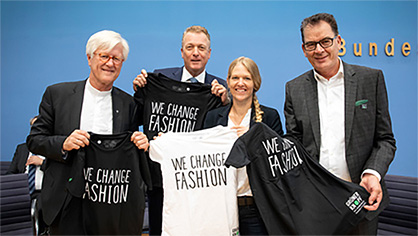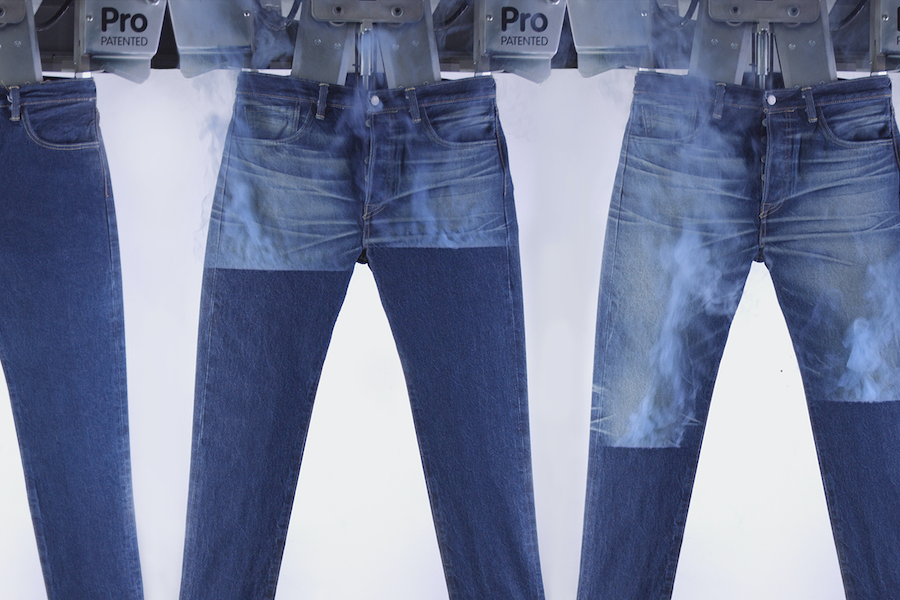#Sustainability
Minister Gerd Müller introduces the "Green Button", a publicly endorsed textile label
Minister Müller: "Globalisation first began with the textiles industry in the 19th century. Now it is time for fair globalisation to begin there, too. With the Green Button label we are setting a high standard and we are showing that fair supply chains are possible. After today no one will be able to deny that any more. All the companies that have signed up to the new certification are proof."
Products like T-shirts, bed sheets or backpacks have to meet 26 demanding social and environmental standards – from limits for chemical residues and a total ban on dangerous chemicals to minimum wages and no child or forced labour. In addition, the company itself is scrutinised based on 20 other criteria: Does it disclose its suppliers? Do seamstresses have recourse to complaints mechanisms where they work and live? Does the company eradicate any shortcomings that are found?
Minister Müller: "That is what makes the Green Button special: the entire company is scrutinised. It is not enough for it to have a few products ‘for show'. No other label applies this depth of scrutiny."
To start with, the Green Button will cover the two most important production stages: "sewing" and "dyeing". All of the 100 billion garments produced worldwide go through these stages. There are 75 million people employed in carrying out these processes. And this is what the workers were doing at the Rana Plaza textile factory which collapsed.
Over the next few years the Green Button will be expanded to cover other stages of production, such as cotton growing. The social and environmental criteria will also be continuously developed, for example towards promoting living wages. An advisory board with representatives from business, science and civil society is providing support.
Minister Müller: "Fair fashion is a huge trend right now. Seventy-five per cent of consumers say that fair clothing is important to them. Until now, however, there was a lack of orientation. The Green Button will change that. We will now be able to make a contribution to fair globalisation with our every purchase, all the while ensuring that neither people nor nature are exploited for our consumption choices. It will be a contribution for human compassion and humanity."

The following companies have already signed up:
The 27 companies already signed up to the Green Button include start-ups, medium-sized companies, recognised sustainability pioneers and big brands: Alma & Lovis, Aldi Nord, Aldi Süd, Brands Fashion, CharLe, Derbe, Dibella, Engel, Feuervogl, Hans Natur, hessnatur, Hopp, Kaufland, Kaya&Kato, Lidl, Manomama, Melawear, Millitomm, Modespitze Plauen, Phyne, Posseimo, Rewe Group, Schweickardt Moden, Tchibo, Trigema, Vaude and 3 Freunde.
Another 26 companies are currently going through the scrutiny process; they include Hugo Boss, the Otto Group and also some smaller businesses such as Socks4Fun.
For further information (in German) about the Green Button visit:
https://www.gruener-knopf.de















